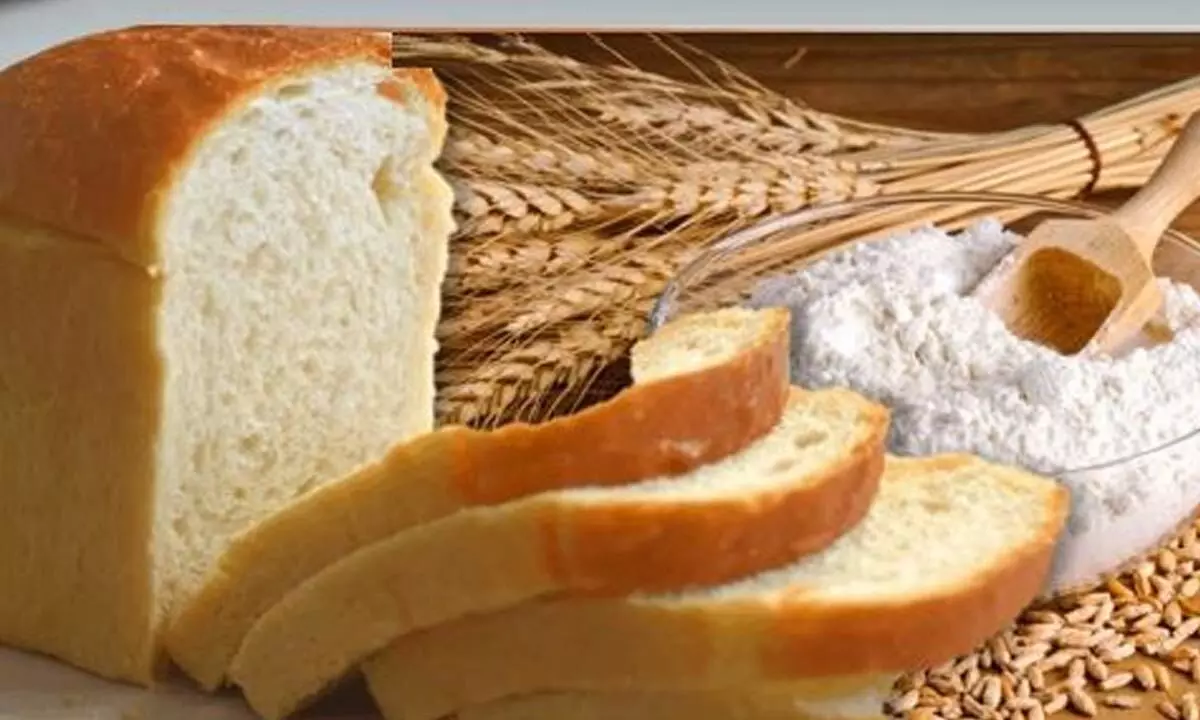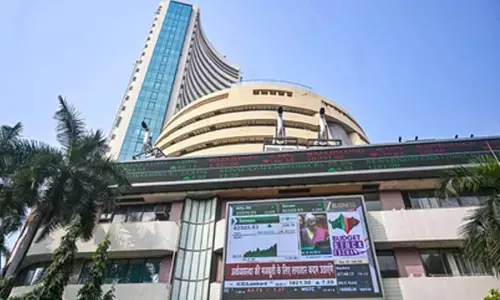Atta, bread, biscuit prices hit all-time high

Atta, bread, biscuit prices hit all-time high
reason: fall in wheat output and global demand
New Delhi: Wheat flour (atta), the most commonly used food item in Indian kitchens, is seeing a massive surge in prices, so much so that rates have reached a decade high. The all India monthly average retail price of wheat flour stood at Rs 32.38 per kg in April, the highest since January 2010.
According to the data by State Civil Supplies Departments to the Union Ministry of Consumer Affairs, Food and Public Distribution, the all-India average retail price of wheat flour was Rs 32.78 per kg on Saturday last.
A year on year price analysis shows that the all-India average retail price of wheat flour has grown 9.15 per cent in the last one year. One kilogram of atta cost Rs 30.03 per kg a year ago. The price rose to Rs 32.78 per kg this year.
Among the 156 centres for which data are available, the price on Saturday was the highest in Port Blair (Rs 59 per kg) and the lowest (Rs 22 per kg) in West Bengal's Purulia. The price was Rs 49 per kg in Mumbai, Rs 45 in Hyderabad, Rs 34 in Chennai, Rs 29 in Kolkata and Rs 27 in Delhi. Rising fuel prices too have a bearing on the increasing wheat flour rates.
Experts are attributing the price rise due to a fall in production as well as stocks of wheat in the country. While the production has fallen in the country, in tandem the demand has risen outside the country.
Data shows that the all-India average daily retail prices of wheat flour have been rising since the beginning of the calendar year. Since January 1, prices have increased 5.81 per cent since January 1.
The ongoing Russia-Ukraine war has led to a fall in wheat production. Russia and Ukraine together account for a quarter of the world's total wheat exports.
In 2019, Russia's wheat exports amounted to $8.14 billion, and Ukraine exported about $3.11 billion of wheat. With these two countries embroiled in a long-drawn bitter war, the world is grappling with wheat shortages and increase in prices. In the Indian context, citizens are shelling more also because of higher overseas demand for Indian wheat. The high domestic price of diesel has added to the logistics cost of both wheat and flour.
The price rise has had a domino impact. Along with wheat flour, the prices of bakery products, biscuits and bread too have registered a sharp increase in recent months. Retail inflation for bakery bread was 8.39 per cent in March this year, the highest in the past 7 years.
Britannia, which makes a plethora of bakery items -- Jam Jam biscuits, Marie Gold, Nutri Choice, fruit cakes, etc -- is set to increase its prices by 10 per cent in days to come. The company has already hiked prices of its products by 10 per cent in 2022.
The government has set a wheat production target of 110 million tonnes for 2021-22, which is higher than the estimated production of 109.59 million tonnes in 2020-2021. In fact, the second advance estimate, released by the Ministry of Agriculture and Farmers Welfare on February 16 pegged the wheat output for 2020-2021 at 111.32 million tonnes.
Union Food Secretary Sudhanshu Pandey said last week that wheat production was expected to be around 105 million tonnes. A statement issued by the Food Ministry cited the early onset of summer as a reason for the decline in wheat yield.
As per Food Ministry estimates, wheat procurement during the current rabi market season is likely to be 195 lakh tonnes, significantly below the government's initial procurement target of 444 lakh tonnes and last year's actual procurement of 433 lakh tonnes.
| Port Blair | Rs 59 |
| Mumbai | Rs 49 |
| Hyderabad | Rs 45 |
| Chennai | Rs 34 |
| Kolkata | Rs 29 |
| New Delhi | Rvs 27 |
| Purulia (WB) | Rs 22 |














